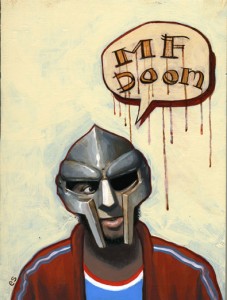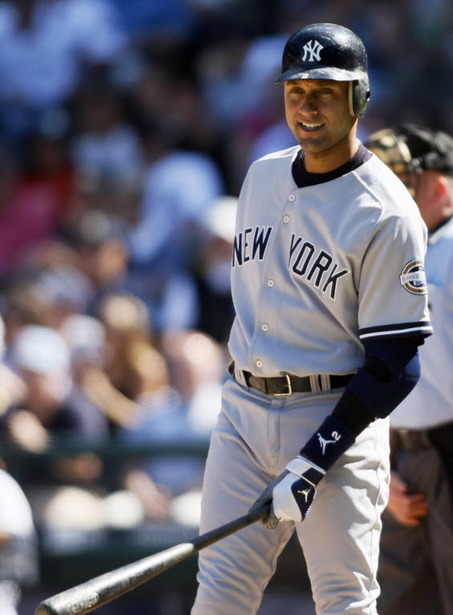Why I love rap music
I’m not a particularly musical person – I was kicked out of the school band in grade 7 because I was so inept at playing the trumpet – but I love listening to music.
In fact, whenever I write I have my iTunes running on random shuffle. Although I’ve got an eclectic collection of songs, the vast majority of it is hip-hop.
The reason is simple - even though I’m a middle class white guy, rap music speaks to me more than any other genre. Sure, I like rock, country or even some classical music but for me, nothing compares to urban music.
I’ll be the first to admit I come from a very different world than most rappers. Aside from Drake – who grew up around the corner from my apartment – I can’t honestly say that I identify with the hard, impoverished world of many rappers. The violent and often criminal reality of a rapper like Snoop Dogg or Dr. Dre is something I’ve never experienced and hope I’ll never have to.
However, I can identify with Dr. Dre’s concerns about aging and re-establishing his personal identity as he does in the classic album Chronic: 2001. I can also empathize with Jay-Z on his track Young Forever from the Blueprint III. The subject matter may be foreign, but the themes are universal.
Unlike a lot of media, rap often conveys narratives with humour and playfulness that belies the seriousness of the content. As the Atlantic’s Ta-Nehisi Coates recently pointed out, a talented MC like Ghostface Killah can make you laugh while describing selling drugs in a school zone.
I think a fair comparison would be enjoying classic literature. I will never be in the dense colonial jungles like Kurtz in Heart of Darkness and I will never be a drug dealer like the Notorious B.I.G. in “Juicy”, but I can be moved by both.
However, hip-hop makes itself more accessible then a lot of other media by being the most culturally aware of all musical genres.
Lyrics refer to historical events, other musicians, television, comic books or movies. You just can’t find a line like Everlast’s “Because I can feel it in the air tonight/but yo I’m not Phil Collins/I’m more like Henry Rollins” in other kinds of media. At least, not often.
Whether it’s the Beastie Boys name-checking Star Trek, the various members of the Wu Tang Clan creating “secret identities” based off of super-heroes from Marvel Comics or MF Doom basing his entire persona of the villain of the same name, rappers locate themselves in a cultural context that any listener can easily identify.
It goes well beyond lyrical styling - the beat itself is often a sample from another song or a television show. Busta Rhymes using the theme from Knight Rider or DMX and Onyx using the intro to Welcome Back Kotter for “Slam Harder”.
The music itself is a clever nod to the urban environment that it’s created in.
Floating snippets of familiar hooks and beats and sampled choruses are reminiscent of music floating out of neighbourhood windows as you walk down the street. Thumping bass simulates the clacking of subway cars riding on aging tracks. Changing lyrical flow or rotating MCs is a lot like catching parts of a conversations as you pass people on the sidewalk.
It’s impossible to listen to Grand Master Flash and the Furious Five’s “the Message” and not recognize the frustrations of living in a city. The same can be said of Kurtis Blow and Run DMC’s collaboration for “8 Million Stories”.
This culturally-awareness is the great strength of rap. It makes it more relatable and current. These references helps hip-hop bridge significant divides like politics, gender, religion and, of course, race. Hip-hop inspires and entertains me like no other kind of music.
Major League Baseball needs to adjust its clocks
Although I’m just 26-years-old there are times when I feel old and curmudgeonly. Recently, my complaints have been directed at Major League Baseball’s handling of “event” games, whether they are the World Series, the World Baseball Classic, the All-Star Game or Opening Day.
All of these rather significant baseball games start way too late, they’re filled with time-consuming theatrics and the play itself seems to move at an incredibly slow pace. It makes me feel like an old crank shaking his walking cane at those damn kids who won’t get off my lawn.
However, NorthJersey.com reported Thursday morning that at least two MLB umpires - Joe West and Angel Hernandez – agree with me.
The two officials are members of the crew that have been calling the opening series between the Boston Red Sox and New York Yankees.
“They’re the two clubs that don't try to pick up the pace,” said West in the article. He is the chief of the umpiring crew and was behind home plate on Sunday. “They’re two of the best teams in baseball. Why are they playing the slowest?”
“It’s pathetic and embarrassing. They take too long to play.”
Amen, Joe West. Amen.
Hernandez refused three requests for timeouts during Tuesday night’s game. New York’s Derek Jeter, Marcus Thames and Boston's David Ortiz were all denied a pause from the ‘action’.
Despite West and Hernandez’s efforts to quicken their glacial pace, the Yankees and Red Sox first two games clocked in at 3 hours and 46 minutes and 3 hours and 48 minutes.
Maybe baseball players don’t have to work the next morning, but most people do. How is baseball supposed to cultivate a new audience of young fans when any responsible parent would be sending their kids to bed hours before these games lumber to an end? How are the paying customers expected to sit through nearly four hours of slow play?
Commissioner Bud Selig must find a way to curb these seemingly interminable games. Broadcasters must be haemorrhaging viewers with these lengthy match-ups and in the long run it’s going to shrink baseball’s market share.
Selig should move the time of the game up. Both games in the New York-Boston series were slated to start at 8 p.m. Eastern Daylight Time. How about moving the opening pitch up to 7 p.m.? At least that way the game will end on the same day, barring extra innings.
That’s another thing – when I say “opening pitch”, I do mean the first throw of the game. Not a fly over by the Air Force, the unfurling of a gigantic flag in the outfield or a performance by Jay-Z and Alicia Keys. If you must have all that pageantry, start it at 6 p.m. with the game itself beginning an hour later.
I know that this would effectively cut the West Coast off, but does Selig really want to be developing Yankee and Red Sox fans in California? Shouldn’t they be cheering for the five teams they already have?
Also, the most important part of any sporting event is the final result, and the Pacific Time Zone won’t be robbed of that. A Californian baseball fan who gets off work at 5 p.m. would only be missing the first half of the game.
Major League Baseball is famous for being slow to adapt to change, but enforcing a more reasonable time frame for their games is a pressing concern that Bud Selig should address sooner rather than later. After all, the clock is ticking.

